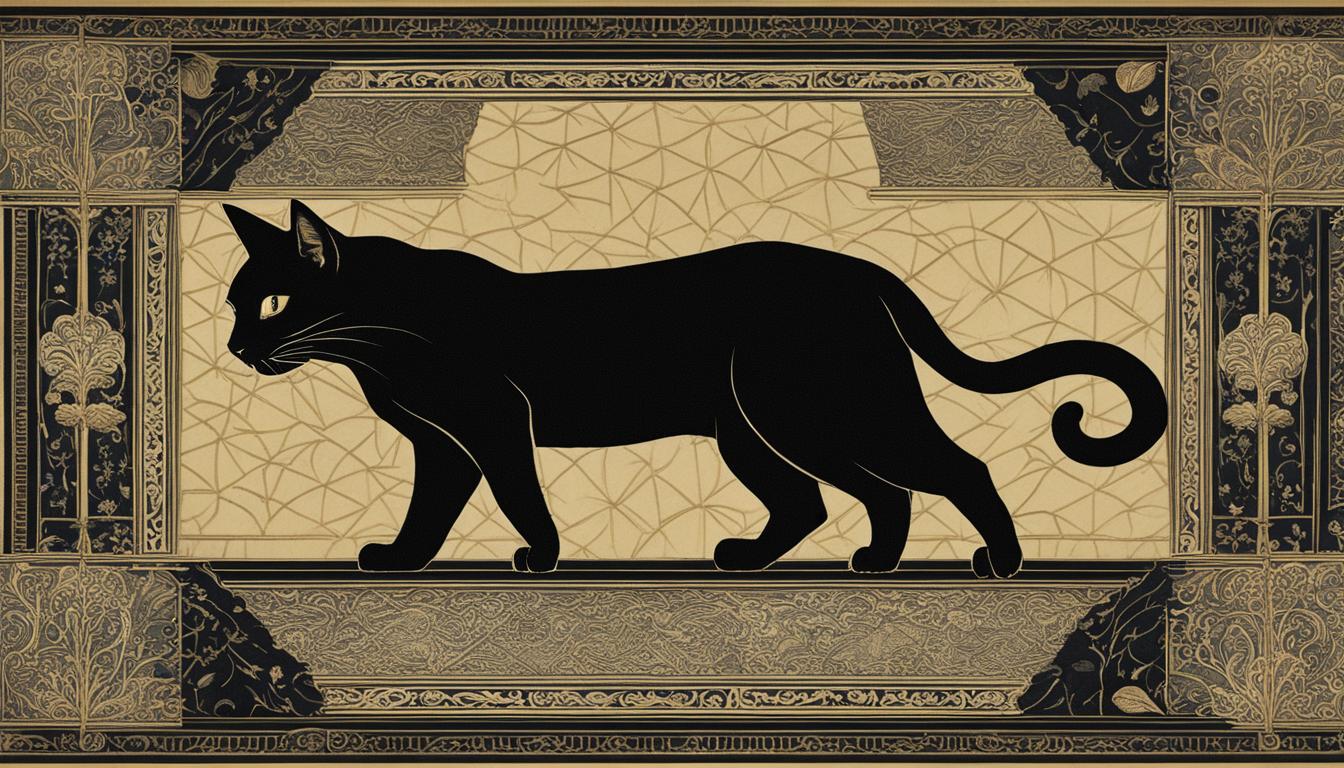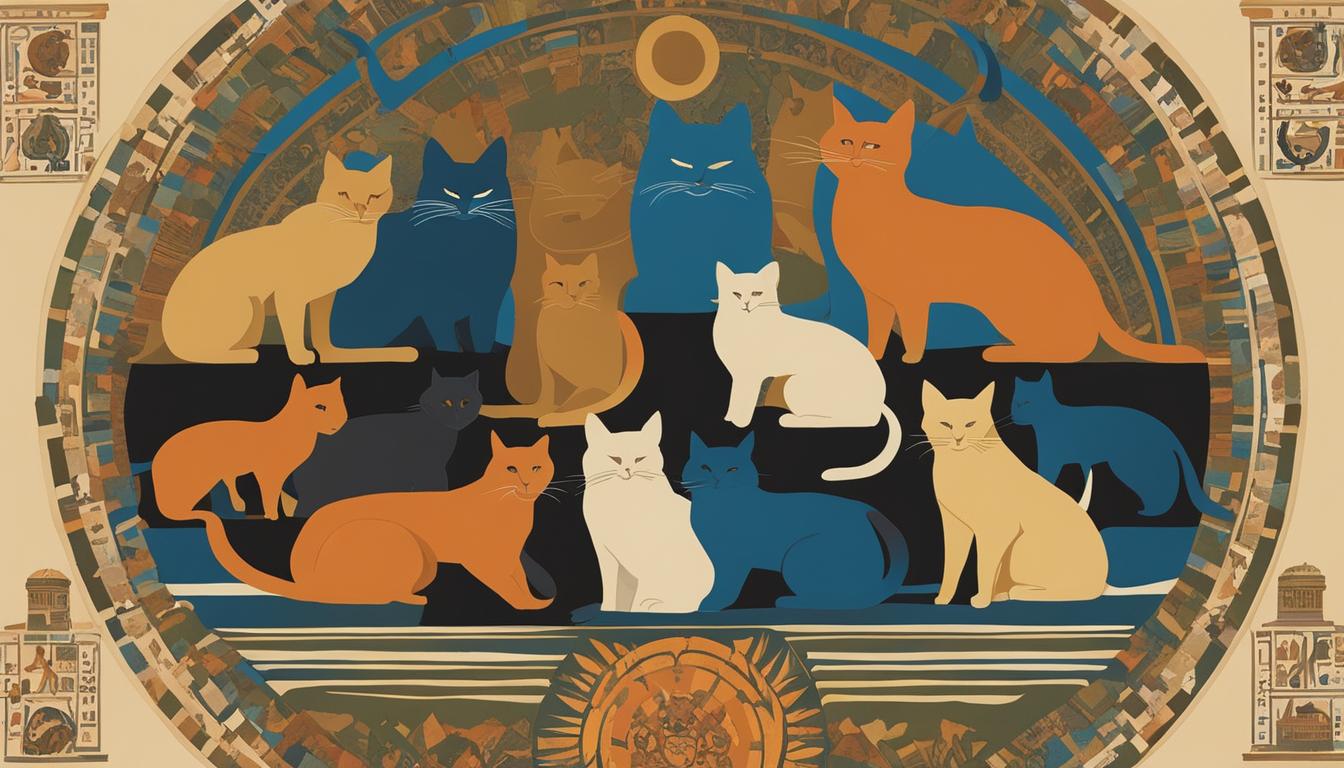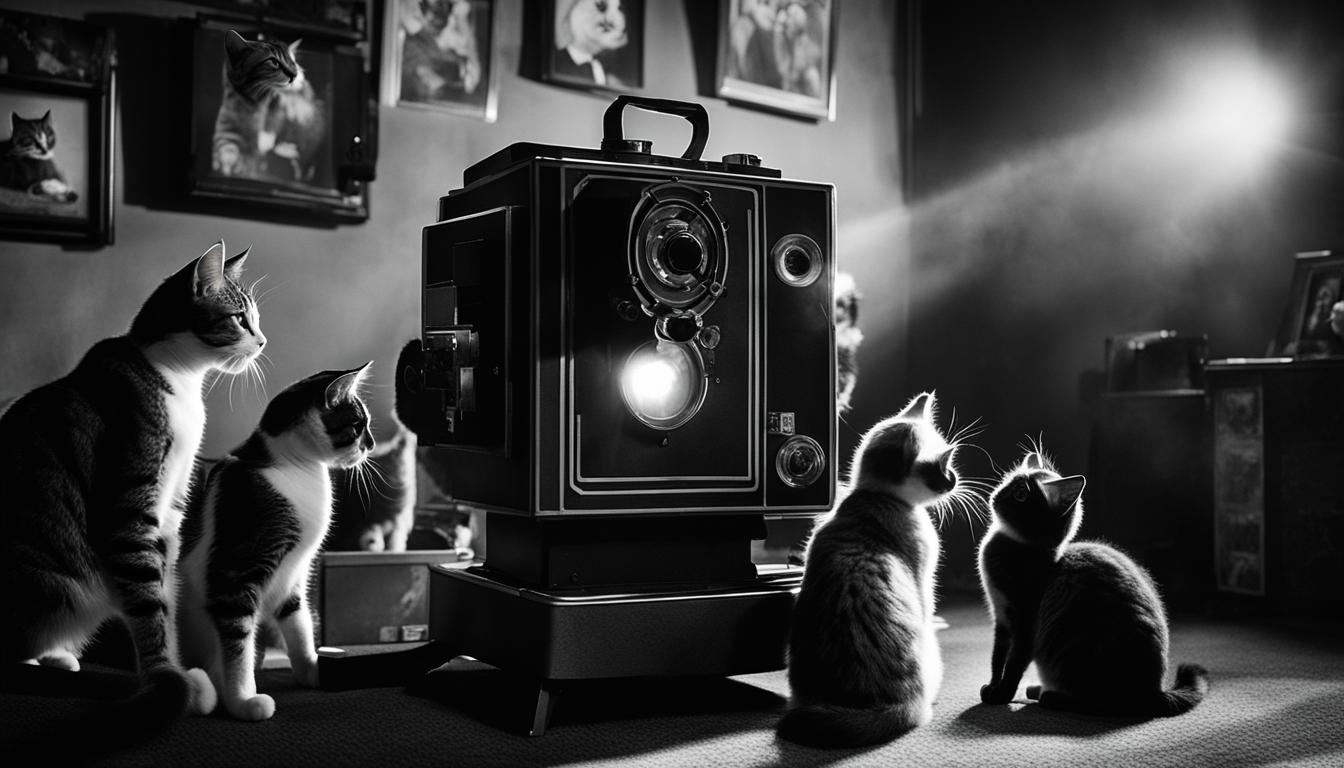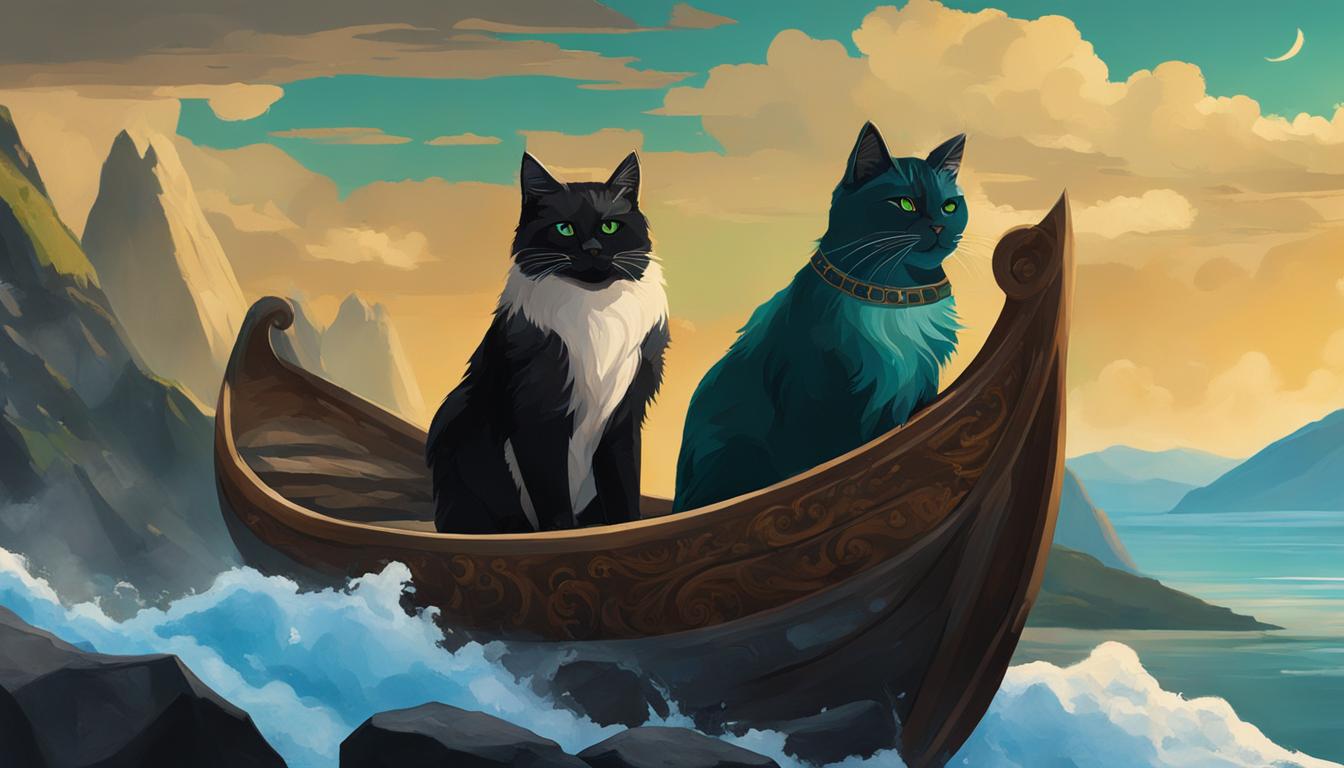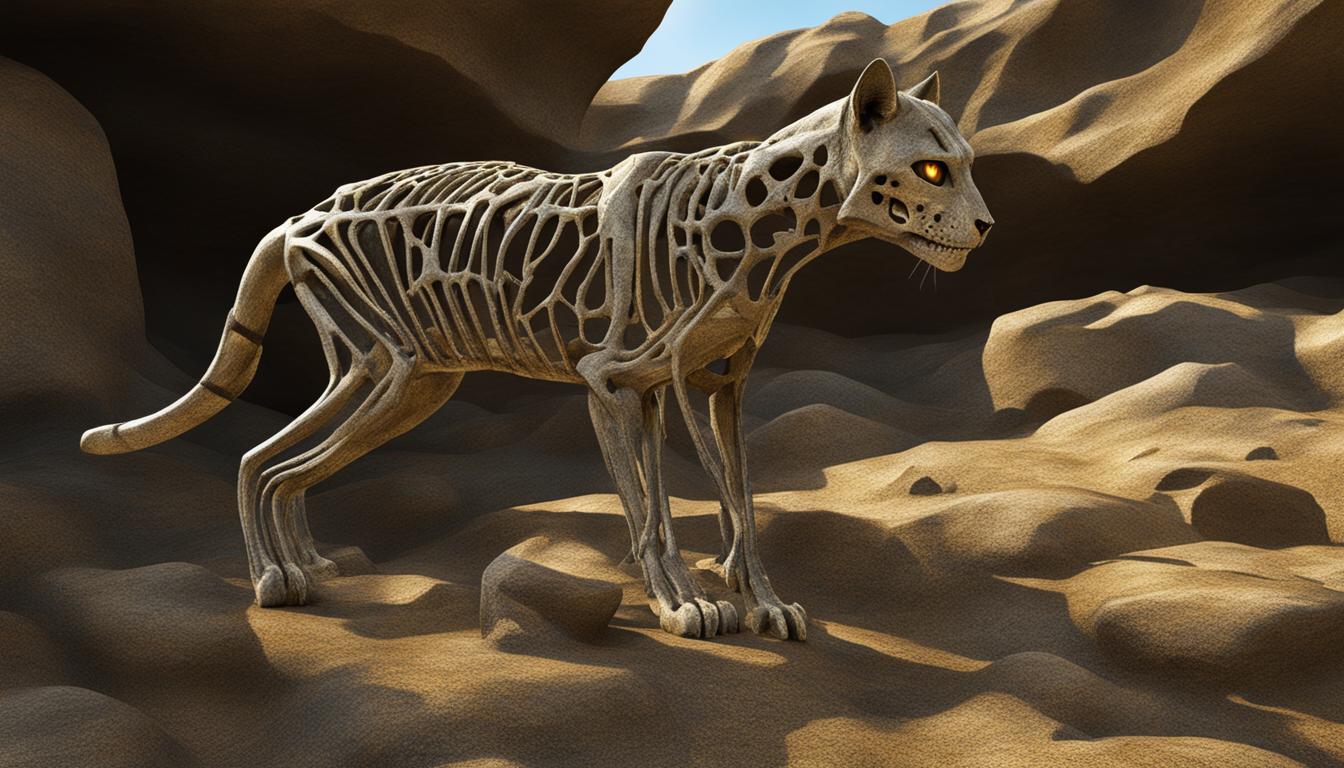Black cats have always fascinated me. Their sleek fur and piercing eyes hold an air of mystery and intrigue. But beyond their physical beauty, black cats have a long-standing history that has both shaped and challenged their place in society. From being revered as sacred creatures to being associated with witchcraft and misfortune, the cultural views surrounding black cats have evolved over time. Let’s delve into the fascinating world of black cats, exploring the myths, origins, and shifting perceptions of luck and fortune.
Key Takeaways:
- Black cats have been associated with both good luck and bad luck throughout history.
- The origin of black cat superstitions can be traced back to ancient civilizations and folklore.
- Various cultures have unique interpretations of black cat symbolism, from luck and protection to witchcraft and supernatural powers.
- Black cats face challenges in shelters due to superstitions and biases, resulting in lower adoption rates.
- It is crucial to raise awareness and debunk misconceptions to improve the lives and adoption rates of black cats.
The Origins of Black Cat Superstitions
Black cats have long been the subject of superstitions and beliefs around the world. While some cultures regard them as symbols of good luck, others associate them with omens of misfortune. These diverse perceptions and superstitions surrounding black cats have deep historical roots that span across different civilizations.
In ancient Egypt, black cats were revered and considered sacred animals associated with the goddess Bastet. They were believed to bring prosperity and protect against evil spirits. However, during the Middle Ages, the perception of black cats took a dark turn. They became associated with witchcraft and were often persecuted alongside individuals accused of practicing black magic. This association of black cats with witchcraft and black magic fueled the negative superstitions that still persist today.
In Scotland and China, black cats were seen as harbingers of good luck and prosperity.
The treatment of black cats further evolved with the arrival of Pilgrims and the spread of Christianity in America. As Christianity grew, black cats became symbols of bad luck, and their association with witchcraft intensified. This led to the perpetuation of negative stereotypes and superstitions surrounding black cats, impacting their treatment and adoption rates in shelters.
| Culture | Belief |
|---|---|
| Ancient Egypt | Black cats considered sacred and associated with goddess Bastet, bringers of prosperity and protectors against evil spirits |
| Middle Ages | Black cats associated with witchcraft and persecuted along with individuals accused of practicing black magic |
| Scotland and China | Black cats seen as harbingers of good luck and prosperity |
| United States | Black cats associated with bad luck and witchcraft, impacting adoption rates |
Despite these superstitions, it is crucial to recognize that black cats, like any other animals, deserve respect, love, and care. By dispelling these unfounded beliefs and raising awareness about the historical treatment of black cats, we can encourage a more compassionate and inclusive attitude towards them.
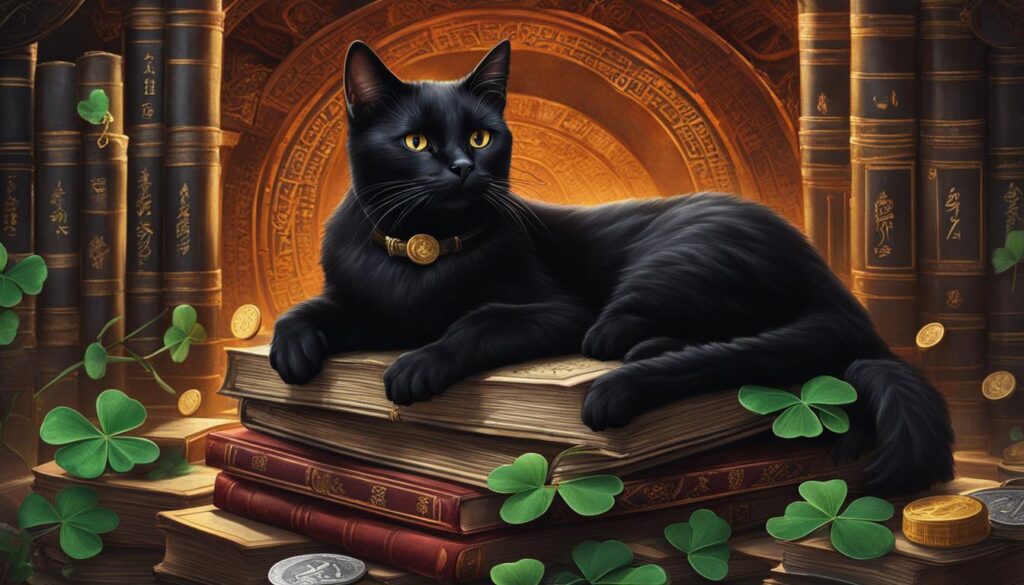
Black Cats in Different Cultures
Black cats have captivated the imagination and folklore of cultures around the world, with their mystique and enigmatic presence. Throughout history, the perceptions of black cats have evolved, giving rise to a diverse range of beliefs and superstitions.
Folklore and Legends
In Scottish folklore, the appearance of a black cat outside one’s home was considered a sign of prosperous times ahead, symbolizing good fortune and abundance. On the other hand, English folklore had a more ambivalent view, associating black cats with both luck and witchcraft. They were believed to bring luck if they crossed one’s path, but were also seen as companions to witches and bearers of supernatural powers.
One of the most enduring mythologies surrounding black cats revolves around witchcraft. In ancient times, it was believed that witches could shapeshift into black cats, using their feline form to conceal their true identity and carry out their dark practices under the cover of night.
Changing Perceptions
Over time, cultural perceptions of black cats have shifted. While they were once regarded as symbols of witchcraft and bad luck, many societies have come to appreciate their beauty and unique qualities. In Japan, for example, black cats are often seen as creatures that bring good luck and protection against evil spirits. The image of the beckoning cat, or Maneki-neko, which is often depicted as a black cat with a raised paw, is a popular symbol of prosperity in Japanese culture.
However, despite these changing perceptions, black cats still face challenges today. Superstitions and biases continue to impact their adoption rates, leading to longer stays in shelters and a higher risk of euthanasia. It is important for society to recognize the individuality and charm of black cats, promoting a more positive outlook that can help improve their lives and increase adoption rates.
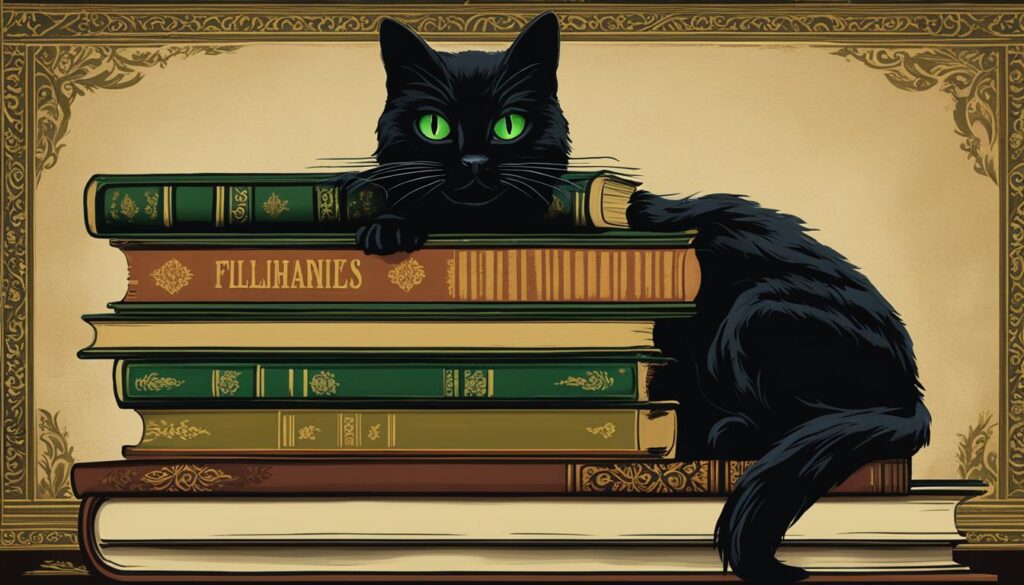
| Name | Culture or Context | Role/Significance |
|---|---|---|
| Salem | TV Show: “Sabrina the Teenage Witch” | Companion and familiar to the main character, Sabrina Spellman |
| Binx | Movie: “Hocus Pocus” | Ghost of a young boy trapped in the body of a black cat, helping the protagonists defeat the witch sisters |
| Bagheera | Book/Movie: “The Jungle Book” | Mowgli’s loyal guardian and mentor |
| Tom Kitten | Book: “The Tale of Tom Kitten” by Beatrix Potter | One of Beatrix Potter’s beloved characters, getting into mischief with his siblings |
Challenges Faced by Black Cats in Shelters
Black cats often face unique challenges in shelters due to the superstitions and biases surrounding them. These biases can affect their adoption rates and consequently lead to longer shelter stays and even euthanasia.
One of the primary factors contributing to the challenges faced by black cats is the superstitions associated with them. Many people still believe that black cats bring bad luck or are associated with witchcraft, which leads to a reluctance in adopting them. This phenomenon, known as Black Cat Syndrome, can have a significant impact on the lives of these animals.
Another issue that black cats encounter in shelters is their visibility. Black fur doesn’t always photograph well, making it challenging for potential adopters to see their true beauty and unique personalities. This lack of visibility can further contribute to lower adoption rates for black cats compared to cats of other colors.
| Challenges Faced by Black Cats in Shelters | Impact |
|---|---|
| Superstitions involving black cats | Lower adoption rates |
| Visibility issues (photographing black fur) | Difficulty showcasing their true beauty |
| Negative perceptions and biases | Longer shelter stays and potential euthanasia |
To address these challenges, various awareness campaigns and initiatives have been launched to combat the biases and promote the adoption of black cats. These campaigns aim to educate the public about the true nature of black cats and dispel the myths surrounding them. By highlighting the unique qualities and lovable personalities of black cats, it is hoped that more people will consider adopting them and giving them a forever home.
Black Cats and Halloween
When it comes to Halloween, one image that immediately comes to mind is the iconic black cat. These feline companions have long been associated with the spookiest holiday of the year, but why? Let’s explore the fascinating connection between black cats and Halloween.
Black cats have been tied to supernatural beliefs and witchcraft throughout history, and these associations have contributed to their strong presence during Halloween celebrations. In folklore, black cats were believed to possess magical powers and were often seen as familiars of witches. They were even thought to be shape-shifters or witches themselves. This symbolism has been perpetuated in literature, movies, and popular culture, cementing the black cat’s role as a Halloween icon.
However, it’s important to separate fact from fiction. Black cats are not evil or bad luck, but rather, they are just as lovable and deserving of care as any other cat. Unfortunately, the perpetuation of stereotypes and superstitions has led to challenges for black cats, especially during the Halloween season. Some shelters even suspend the adoption of black cats during this time, fearing potential mistreatment or harm.
| Fact: | Black cats are simply cats with a unique genetic trait that gives them their dark coat color. They are not inherently linked to witchcraft or bad luck. |
|---|---|
| Myth: | Black cats are witches’ familiars and bring bad luck. |
| Reality: | Black cats are just as loving, playful, and deserving of forever homes as any other cat breed. |
As we celebrate Halloween, let’s remember that black cats are not symbols of fear or bad luck, but rather, they are beautiful companions who are waiting for a loving family to welcome them into their homes. By dispelling the myths surrounding black cats and promoting their positive qualities, we can help ensure that these wonderful feline friends find the forever homes they deserve.
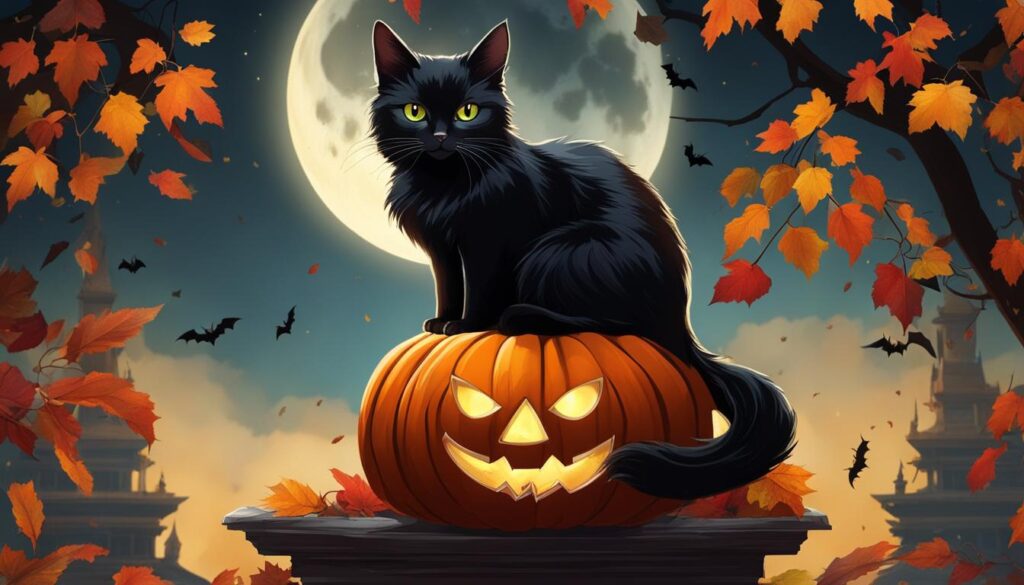
Conclusion
Throughout history, black cats have been at the center of cultural folklore and superstitions, shaping our perceptions of luck and fortune. Some view them as symbols of bad luck, while others revere them as bringers of good fortune. Unfortunately, black cats face biases and lower adoption rates in shelters, all due to superstitions and misunderstandings.
But it’s time for society to debunk these misconceptions and raise awareness about the beauty and charm of black cats. We need to recognize that these superstitions are based on myths and biases, not on the true nature of these amazing creatures.
By promoting positive images and celebrating the unique qualities of black cats, we can help improve their lives and increase adoption rates. It’s time to come together and embrace the true magic of black cats. Let’s challenge the black cat bias and show the world that they deserve love, care, and forever homes.
FAQ
Are black cats really considered unlucky?
While black cats have been associated with superstitions and considered unlucky in some cultures, it is important to recognize that these beliefs are based on myths and biases. In reality, black cats are just as loving and wonderful as any other cat breed.
Do black cats bring good luck?
The belief that black cats bring good luck is prevalent in certain cultures. In Scotland and China, for example, black cats are considered symbols of prosperity and good fortune. However, these superstitions vary across different regions and cultures.
Why are black cats associated with Halloween?
Black cats have been associated with Halloween due to their depiction in folklore and popular culture. The belief that black cats are somehow linked to black magic and witchcraft has contributed to their association with the spooky holiday.
Do black cats have a harder time getting adopted?
Unfortunately, black cats often face challenges in shelters and have lower adoption rates compared to other cat breeds. This phenomenon, known as Black Cat Syndrome, is attributed to superstitions and biases surrounding black cats.
How can we combat biases against black cats?
It is important to raise awareness about the beauty and charm of black cats and debunk the misconceptions associated with them. By promoting positive images and understanding the true nature of these animals, we can help improve their lives and increase adoption rates.

